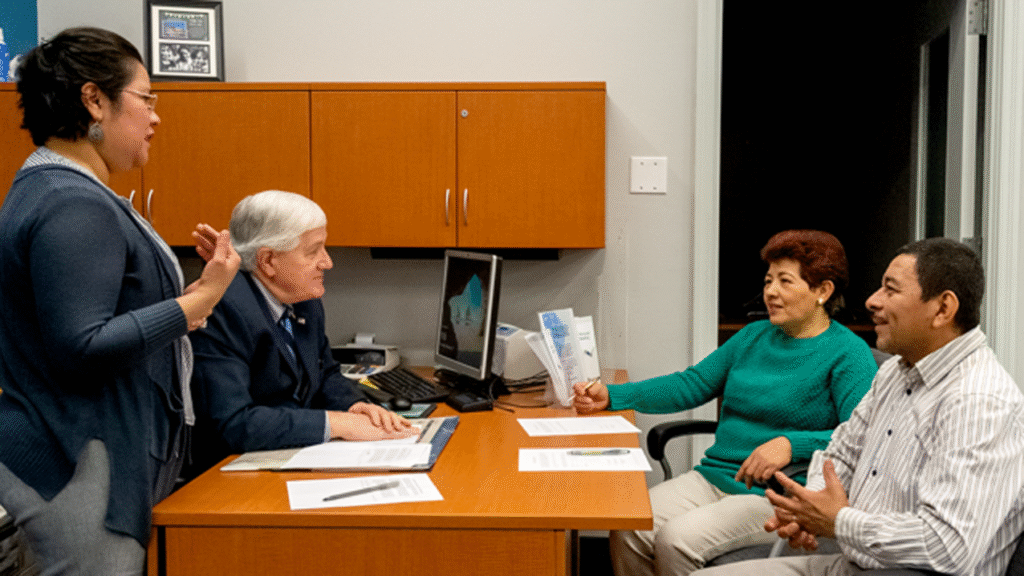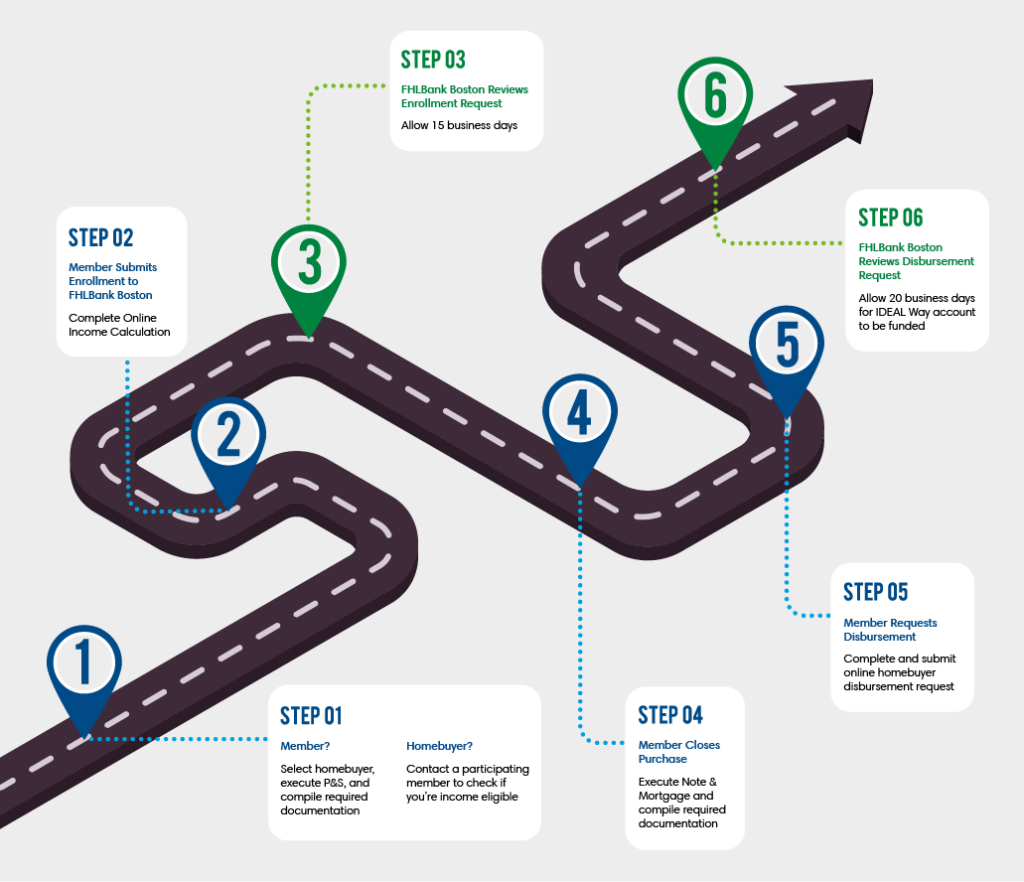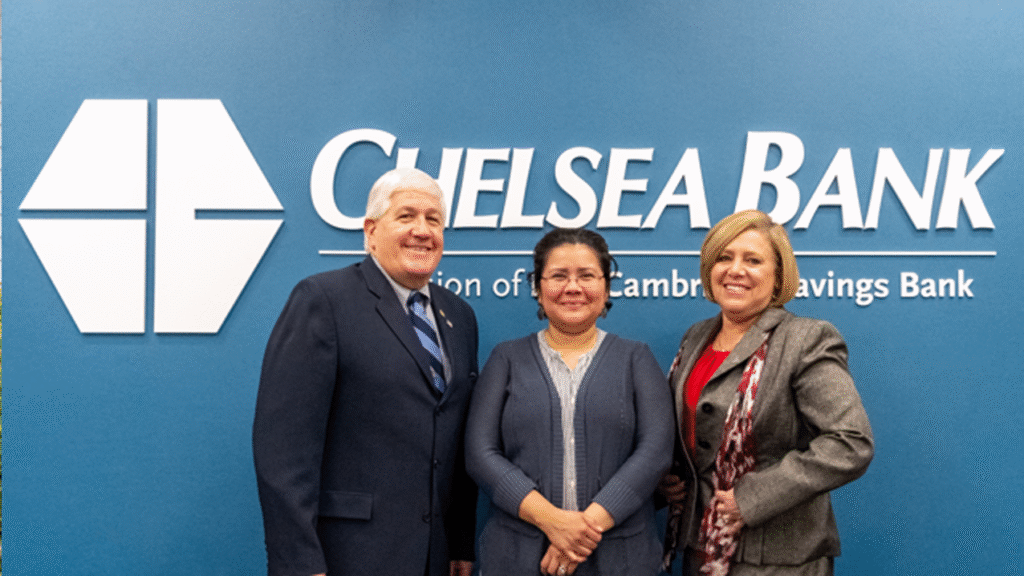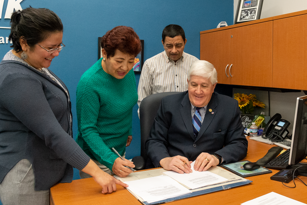
Frequently Asked Questions about Housing Our Workforce
If you are a member or homebuyer who would like to participate in the Housing Our Workforce (HOW) program, it’s important that you ask the right questions and have reliable resources. Here are some frequently asked questions about HOW.
Housing Our Workforce (HOW) provides down-payment and closing cost assistance to homebuyers earning more than 80% and up to 120% of the area median income. Through HOW, grants are made to eligible borrowers when they close on mortgages with participating member financial institutions.
For 2026, the maximum grant is up to $25,000. Each year, FHLBank Boston determines the maximum amount, therefore, the amount can vary on a yearly basis.
Yes. A signed offer to purchase or a purchase and sales (P&S) agreement with a property address is required. A fully executed and final P&S is required 30 days after the grant reservation date. This is important because 120% of the area median income (AMI) is derived from a specific state, city, or town. The grant funds are on a first-come, first-served basis which is why a property address and documentation are required. Property addresses can only change one time, and no exceptions may be provided.
Homebuyers will work with their bank or credit union to determine how this is calculated. Please note we have three homeownership assistance programs, and a homebuyer must earn above 80% AMI to qualify for HOW. If income is not more than 80% AMI, a homebuyer may be eligible for Equity Builder Program.
Yes. HOW has a maximum asset cap of $150,000 to ensure grant funds are directed toward households with the greatest financial need. The cap includes both deposit and cash to close not to exceed the $150,000 limit.
No. This program is designed to assist homebuyers who are purchasing owner-occupied primary residences. In addition, if the applicants for HOW funds currently own a primary residence, they must sell the property prior to the purchase of the new owner-occupied, primary residence. They cannot keep the previous primary address and convert it into an investment property.
No. This contribution must be $2,000 of the homebuyer’s own funds and not a gift or gift of equity. This contribution must be evidenced on the executed purchase and sales agreement or addendum. The homebuyer may receive an additional gift or gift of equity in the transaction; however, these sources of funds will not be considered the homebuyer’s own contribution.
Yes. There is a graduated enrollment cap per member. A maximum cap of $125,000 per member will be in place for the first two funding releases. The maximum cap will increase to $250,000 with the third funding release. Member caps are maximum limits without a guarantee of funds.
No. Homebuyers must work with a member financial institution that has been approved to participate in the program. The approved members will be posted in mid-March. If you are a homebuyer, please contact a member financial institution to see if they are an approved participant.
HOW grants are forgivable after five years from the closing date of that primary residence. If you decide to sell the home prior to the five years, you may owe a repayment.
You must contact the member financial institution that provided the first mortgage financing at the time of purchase. The member will contact FHLBank Boston’s housing and community investment staff to see if a repayment is needed.
The amount owed is calculated by reducing the HOW grant on a pro rata basis per month or days (in favor of homeowner) for the period the home is owned, based on the original closing date and the current date of the transaction. Credit is given for the period that you owned the home. Repayment is due only for the remainder of the five-year retention period and only if the repayment amount is over $2,500.
The Closing Disclosure will be compared from time of purchase to the current transaction to determine if any net proceeds from the sale are realized. The net proceeds calculation will include the household investment while residing in the home.
You have the option to pay back the remaining grant funds or request a subordination. This is a forgivable grant after the five-year retention period expires. Depending on the circumstances, the best option is usually to subordinate the HOW grant to eliminate repayment, but it is up to the homeowner’s sole discretion.
This is a legal document that is executed on refinance transactions to change the order of the liens. It is completed when a property has more than one mortgage lien. The subordination moves the position of the HOW grant behind the first mortgage.
You must contact the original member financial institution that provided financing for the property purchase even if you are obtaining refinancing from a different financial institution. The member will contact FHLBank Boston’s housing and community investment staff members to request a subordination approval.
You must contact the original member financial institution that provided the financing for the property purchase. We recommend contacting the institution’s loan servicing department.
*These prices, listed by county, change each year.


